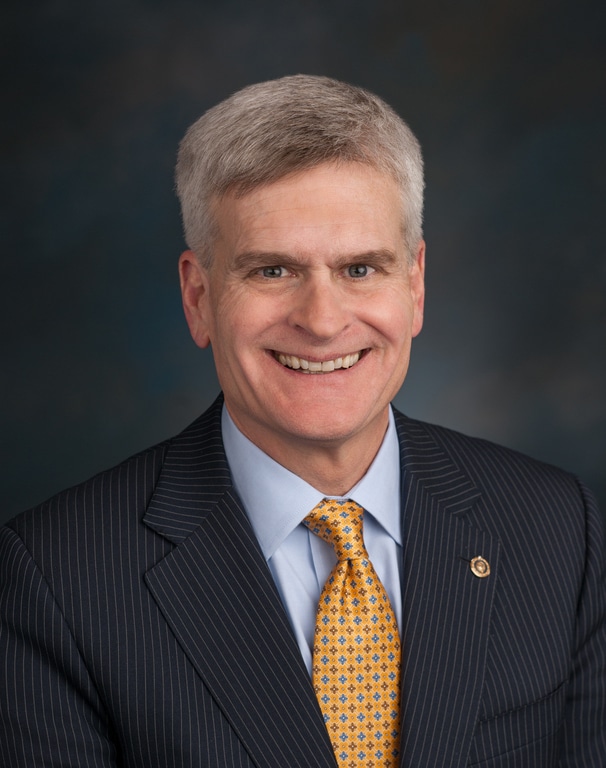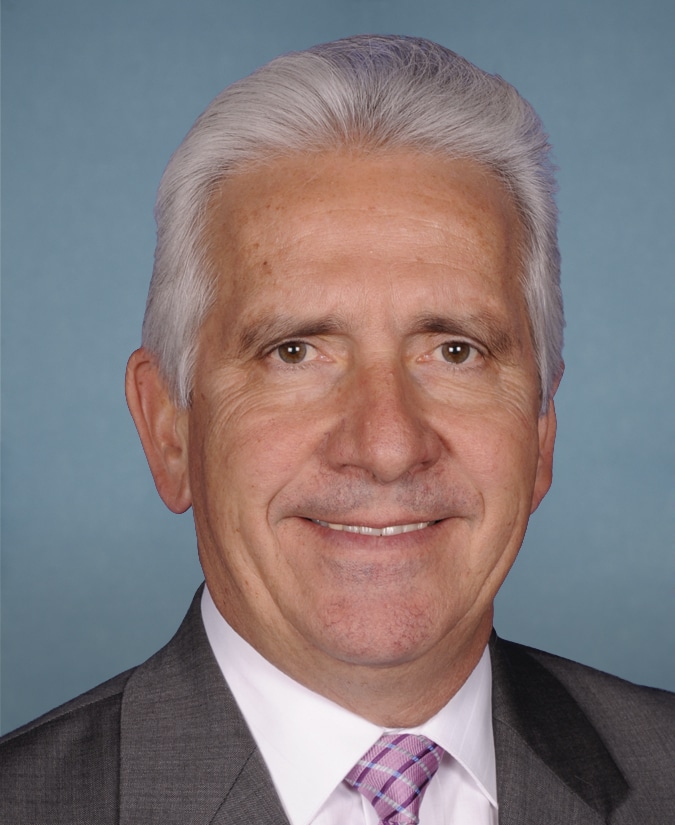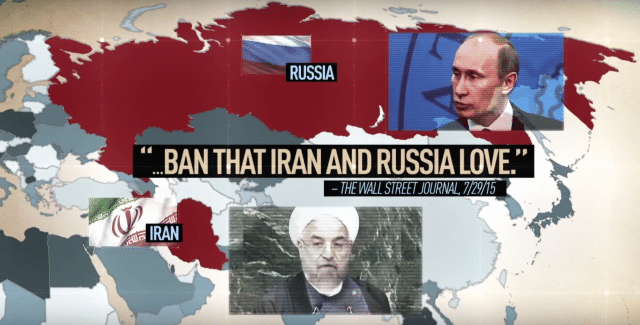The American Petroleum Institute (API) has launched a new advertising campaign in its ongoing push to oust the U.S. oil exports ban in place since 1975.
One of the most recent ads, titled “Crude Oil Exports and National Security” on YouTube, starts off with ominous music and asks, “Who loves the ban on U.S. crude oil exports?” The answer, says API, is “Iran and Russia, not exactly our best friends.”
Not mentioned: both countries currently maintain business ties with API‘s dues-paying members.
The ad, reported the Houston Chronicle, aired in Colorado, Florida, Illinois, Indiana, New Mexico, New York, New Jersey, Pennsylvania, Virginia, Maryland, West Virginia and Washington.
API has also launched a new website dedicated to pushing oil exports, OilAndExports.com, which makes the case for exporting U.S. oil. And two API front groups, both Energy Citizens and Energy Nation, have also published petitions calling for congressional offices to lift the ban.
The push by the industry’s most powerful lobby comes as rumors have swirled about the potential for a merger between America’s Natural Gas Alliance (ANGA), the hydraulic fracturing (“fracking”) industrial complex’s lobby, and API.
It also comes as the U.S. House of Representatives, led by a Republican Party majority, just passed a bill to end the oil export ban.
API is not alone in pushing the oil exports to fend off Iran message, with the industry-funded Producers for American Crude Oil Exports and the Domestic Energy Producers Alliance (DEPA) also disseminating their own similar commercials.
DEPA, created by Harold Hamm — Continental Resources CEO and 2012 Republican Party presidential candidate Mitt Romney’s energy advisor — has also created its own website advocating for lifting the ban at LiftTheExportBan.com.
That website was registered by Jamie Whitefield and Sarah Catalano of Cothran Development Strategies, Inc., a firm which took the lead on Mitt Romney’s 2012 Oklahoma fundraising efforts.
Big Oil in Iran, Russia
As with the public relations push for LNG exports during the early days of the Russia-Ukraine conflict over Crimea, the notion of using oil exports to fend off Eastern European countries’ reliance on Russian oil has again become a central industry talking point.
The big problem, as reported by DeSmog, is that companies like ExxonMobil, Shell, Chevron and ConocoPhillips — all API members — have business ties with Russia.
Another hole in the argument is that, as the Congressional Research Service pointed out in a May memorandum, Eastern Europe’s refineries are predominantly equipped to ingest Russia’s medium sour oil and it would be prohibitively expensive for them to retool in order to take U.S. light oil obtained from fracking.
A similar story plays out pertaining to Iran.
“Exxon…hired [Nickles Group], the lobbying firm founded by former [U.S.] Senator Don Nickles, an Oklahoma Republican, to monitor activity related to Iranian sanctions, according to federal disclosure documents,” explained Bloomberg. “This is the first time since 2010 that the Irving, Texas-based oil company enlisted outside lobbyists to discuss Iran.”
That monitoring on behalf of ExxonMobil was done by Don Kent, a former chief-of-staff for U.S. Sen. Ron Johnson (R-WI) and Assistant Secretary of the Bush Administration’s Department of Homeland Security.
Image Credit: U.S. House Office of the Clerk
Beyond ExxonMobil, “60 Minutes” reported in 2004 that oil and gas services multinational giant Halliburton incorporated an offshore subsidiary in the Cayman Islands called Halliburton Products and Services, Ltd. in order to do business with Iran, even though the country had been placed under the “Axis of Evil” by former President George W. Bush.
At the time the subsidiary was set up, former Vice President Dick Cheney — long-time proponent of lifting the trade embargo with Iran — served as Halliburton’s CEO.
Another API member, BP, actually attempted to benefit from the 1953 coup the UK‘s intelligence agency, the MI6, helped create in concert with the U.S. Central Intelligence Agency (CIA).
The coup took place after its former president, Mohammed Mossadegh, nationalized the country’s oil and gas reserves. At the time, BP‘s precursor — the Anglo-Persian Oil Company — was the only foreign oil company extracting petroleum in Iran.
Financial Times has reported that western oil companies are salivating at the thought of the Iranian oil and gas industry opening back up for business for them, comparing it to shopping at a “candy shop.”
Politicians, Press Parrot Talking Points
Both prominent politicians and media outlets have also begun parroting Iran oil export talking points, a sign the industry’s public relations and lobbying efforts have paid off as the push to overturn what’s left of the U.S. oil export ban proceeds.
“There are also good strategic reasons for lifting the ban. It’s absurd to keep American oil producers from selling crude oil on global markets at a moment when the U.S. is about to lift the limits imposed by sanctions on the Iranians,” declared the Wall Street Journal in an August 14 editorial. “Expanding the supply of U.S. oil would also provide allies in Eastern Europe with alternatives to their current oil dependence on Vladimir Putin’s Russia.”
Two days earlier, U.S. Sen. Bill Cassidy (R-La.) echoed the Journal as it pertains to lifting the ban and Iran.

U.S. Sen. Bill Cassidy (R-La.) Photo Credit: Wikimedia Commons
“This deal won’t just jeopardize our security, but it will also hurt our economy,” he told The Shreveport Times. “It would allow Iran to export oil but we can’t. That puts our (domestic) energy industry and its workers at a disadvantage. (Obama) should absolutely lift the ban on American oil exports.”
Other Republican members of Oklahoma’s congressional delegation have also sung similar tunes about oil exports with regards to both Iran and Russia.
Some prominent Democrats have also parroted the meme.

U.S. Rep. Jim Costa (D-CAWikimedia Commons
“[P]roviding our domestic producers the ability to sell crude oil to the global market will reduce the geopolitical influence of bad actors like Iran and Russia,” said Blue Dog Democrats Co-Chair for Communications, U.S. Rep. Jim Costa (D-CA), in a September 9 press release issued by the corporate-friendly Blue Dog Democrats coalition. “This is commonsense, bipartisan legislation that will have a positive impact here in the United States and abroad.”
The influential Democratic Party-tied Progressive Policy Institute has also weighed in, citing both Russian and Iran in doing so.
If a bill to end the ban were to pass the Senate, a long shot, it would likely be dead on arrival, with the White House pledging it will veto a bill if it reaches President Barack Obama’s desk. But GOP Majority Leader U.S. Rep. Kevin McCarthy (R-CA) believes “there should be enough to override his veto.”
Image Credit: YouTube Screenshot
Subscribe to our newsletter
Stay up to date with DeSmog news and alerts







